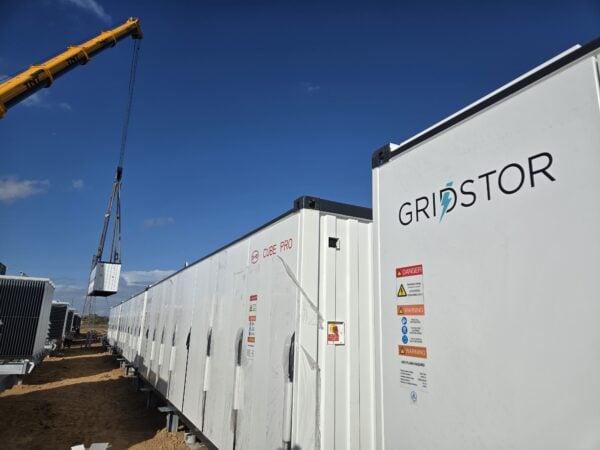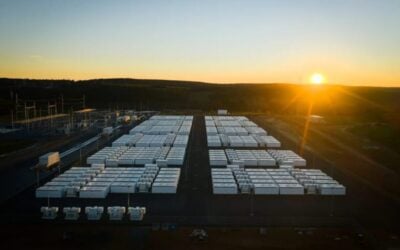
A report from the American Clean Power Association (ACP) and Aurora Energy Research indicates that the Southwest Power Pool (SPP) is projected to experience the highest percentage increase in peak load growth over the next decade among all Regional Transmission Organisations (RTOs).
The clean energy trade organisation ACP commissioned a study from Aurora Energy Research, ‘Battery Energy Storage Impact and Benefits Assessments in SPP’, which highlights SPP’s growing demand, possible cost savings, and grid flexibility and reliability.
SPP manages electric grid operations across all or parts of Montana, North Dakota, South Dakota, Minnesota, Wyoming, Nebraska, Iowa, Missouri, Kansas, Arkansas, Oklahoma, Texas, New Mexico and Louisiana.
According to its website, the RTO services approximately 557,546 square miles and produced 290,267GWh of fuel across all types in 2024, with the majority of the mix coming from wind.
Try Premium for just $1
- Full premium access for the first month at only $1
- Converts to an annual rate after 30 days unless cancelled
- Cancel anytime during the trial period
Premium Benefits
- Expert industry analysis and interviews
- Digital access to PV Tech Power journal
- Exclusive event discounts
Or get the full Premium subscription right away
Or continue reading this article for free
ACP and Aurora’s report highlights SPP’s need for flexible resources like energy storage to bolster its ageing energy generation assets.
As written in the report, “SPP is expecting a significant increase in demand for electricity (peak load growing to ~69GW by 2035), putting a strain on generation and transmission networks at a time of increasing renewables penetration.”
To address this concern, the report says approximately 5GW of energy storage deployed between 2025 and 2035 could help ensure reliable power for the Southern and Central states, saving the region more than US$2.2 billion by 2035.
On the other hand, Aurora’s modelling indicated that without battery storage, peak electricity prices during high-demand periods could rise by US$988 per MWh by 2035.
The analysis also estimates that relying heavily on a single type of legacy energy infrastructure could increase total system costs by US$7 billion. Without storage, daily electricity prices might rise nearly six times higher than in a scenario with even a modest storage expansion.
In 2024, more than 25GW of batteries entered the SPP interconnection queue. The projects, which Aurora says represent billions of dollars in economic and energy investments, are stuck in a lengthy permitting and regulatory review process.
“Grid-scale batteries can be deployed quickly to meet growing reliability needs, but several barriers continue to delay development. Historically, 58% of projects that entered the SPP queue have ultimately withdrawn. To realise the full benefits of storage, both SPP and state policymakers must act to streamline approval processes and advance supportive policies,” Aurora wrote.
Recommended policy and regulatory changes include accelerating interconnection, reforming market rules, removing ambiguity and streamlining and clarifying permitting.
Aurora explains that accelerating interconnection would remove unnecessary delays in connecting new energy storage projects to the grid, highlighting that batteries are available now and can be built and brought online quickly instead of waiting years to connect to the grid.
Reforming market rules involves creating frameworks that produce price signals encouraging energy storage development. Aurora notes that current signals are inadequate to cover the costs of new entries. Furthermore, market rules and accreditation processes should recognise storage’s reliability contributions on par with other resources, preventing any structural disadvantages.
Aurora suggests that clarifying when storage must register as a transmission customer and explaining how transmission charges are applied would remove ambiguity.
Finally, Aurora says simplifying and clarifying permitting processes at state and local levels is vital for safe, rapid energy infrastructure development. Consistent rules for energy storage reduce costs, ensure standards and increase certainty. Fragmented processes across SPP states cause repeated reviews and unnecessary oversight.
The research firm does note that SPP has promising initiatives to streamline interconnection, such as its Consolidated Planning Process (CPP).
Under the existing CPP framework, multiple transmission planning tasks are handled simultaneously, causing multi-year queue delays and necessitating re-studies. Furthermore, the Transmission solution assignment relies on a first-to-the-finish-line method. As interconnection requests grow, this results in additional delays, re-studies, and increased uncertainty.
Aurora suggests redesigning the initiative so that Generation interconnection and all transmission planning are arranged in a clear, hierarchical structure with unified assessments.
A new, consolidated assessment process will combine the generator interconnection with other transmission planning activities, eventually covering generator retirement, sponsored upgrades and the overall SPP system load.
Implementing these initiative and policy changes could benefit states in the SPP region that do not typically see energy storage installations.
The states comprising SPP have seen some grid-scale activity recently. In January, developer-operator GridStor acquired a 200MW/800MWh in-development battery energy storage system (BESS) project from Black Mountain Energy Storage (BMES) in Oklahoma.
At that time, SPP noted the need for BESS to support data centres in Oklahoma and elsewhere.
Utility Xcel Energy also announced plans for deploying 600MW of energy storage by 2030 in SPP states such as Minnesota, North Dakota and South Dakota.
Recently, developer Concurrent Energy has faced pushback in trying to develop its 200MW/800MWh BESS in Halstead, Kansas, located in Harvey County, which recently enacted a two-and-a-half-year moratorium on BESS projects.
ACP and Aurora recently published a similar story on the MISO service area, noting that it will need a 500% rise in battery storage by 2035.
Stephanie Smith, COO of Eolian, said of ACP and Aurora’s SPP report, “By streamlining their process for energy connection, SPP can unleash the power of batteries to store and supply excess, otherwise unused energy, to give consumers the power they need at costs that are affordable.”





